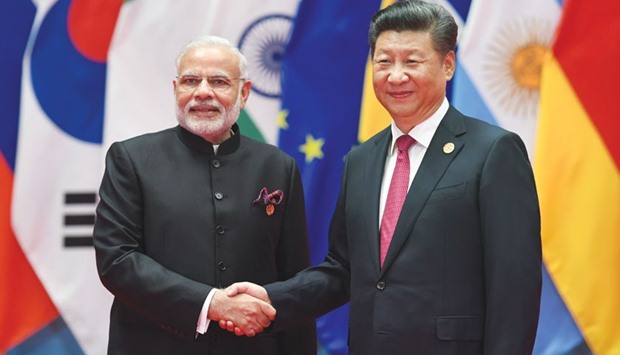Prime Minister Narendra Modi yesterday told Chinese President Xi Jinping India’s concerns over terrorism emanating from Pakistan through which the $46bn China-Pakistan Economic Corridor (CPEC) is being built.
In his 35-minute meeting with Xi on the sidelines of the G20 summit in Hangzhou city, Modi conveyed to him that New Delhi and Beijing “would have to be sensitive to each other’s strategic interests.”
“He (Modi) said it is of paramount importance that both countries respect each other’s aspirations, concerns and strategic interests,” External Affairs Ministry spokesman Vikas Swarup told Indian journalists here.
Asked whether terrorism was discussed, Swarup said: “It was raised.”
The CPEC passes through the restive regions of Balochistan, Gilgit-Baltistan and Pakistan-ruled Kashmir.
India has strongly opposed the project as it claims Gilgit-Baltistan and Pakistani Kashmir.
In his interaction with Xi, Modi said the attack on the Chinese embassy in Bishkek was yet another proof of the “scourge of terrorism.”
Beijing’s refusal to designate Jaish-e-Mohamed chief Masood Azhar as a terrorist has irked India.
This was Modi’s eighth meeting with Xi as prime minister.
“China is willing to work with India to maintain their hard-won sound relations and further advance their co-operation,” Xi told Modi.
Modi told Xi that “our response to terrorism must not be motivated by political consideration” – an apparent reference to Pakistan.
Modi also raised the issue of terrorism in his meeting with Brics leaders and Australian Prime Minister Malcolm Turnbull on the sidelines of G20.
“In a very hard-hitting intervention, he said terrorists in South Asia or anywhere for that matter do not own banks or weapons factories,” Swarup quoted Modi as saying.
Without directly naming Pakistan, Modi told Turnbull: “Our neighbourhood, in particular, was suffering from destabilisation effects of terrorism.”
Modi stressed the importance to “identify the suppliers, exporters and financiers of terrorism.”
Swarup refused to say if the issue of India’s membership to the Nuclear Suppliers Group figured in the meeting with Xi.
“If you read between the lines when we are talking about our strategic interests, concerns and aspirations, it is not that China is unaware of our strategic interests, concerns or aspirations or that we are unaware of theirs. It is something that both sides are aware of,” Swarup said.
Earlier in June, China had blocked India’s entry into the nuclear trade grouping, citing its non-signatory status to the Non-Proliferation Treaty.

Prime Minister Narendra Modi shakes hands with China’s President Xi Jinping ahead of the the G20 summit in Hangzhou yesterday.
